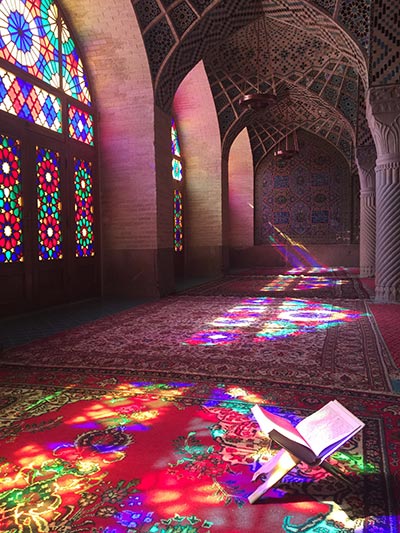 |
|
[Photo by Tan Yingzi/China Daily]
|
Now to that matter of WeChat. In Iran Wi-Fi is accessible in many public places, such as hotels, cafes and restaurants, but WeChat and Facebook are blocked in the country. Like some of our group, you may look on that as 10 days of blissful respite from social media, but if you find that you really must keep in touch with family or friends outside the country, QQ messenger works.
Iran is endowed with very good transport infrastructure and public transport, so it is easy to get around by road, rail or air. Highways link the major cities, and there are clear signs in English and Farsi. At least one big international car rental company, Europcar, seems to operate in the country, and petrol is cheap, about $0.33 a liter. But from what I could see, driving in Iran is akin to a high-speed dodgem ride, and you may be doing yourself a favor by entrusting the driving to those who knows their way around.
For our group of six, renting a van for the whole trip, and paying a local driver, seemed like the most practical and economic thing to do. Hiring a taxi to get to tourist sites is convenient, too, and hotel staff we came across were helpful in arranging this. A taxi for a day (eight hours) in Teheran during high seasons will set you back about $100. Of course, if there are a few people in your party this is particularly economical.
We had the good fortune on our trip to meet many tourists from Europe and the United States and came to realize that they were hobbled compared with us lucky Chinese in touring around. In many cases apart from having far more difficulties in getting a visa, they also could not travel as independently as us, requiring an official guide, they said.


























 Raymond Zhou:
Raymond Zhou: Pauline D Loh:
Pauline D Loh: Hot Pot
Hot Pot Eco China
Eco China China Dream
China Dream China Face
China Face






